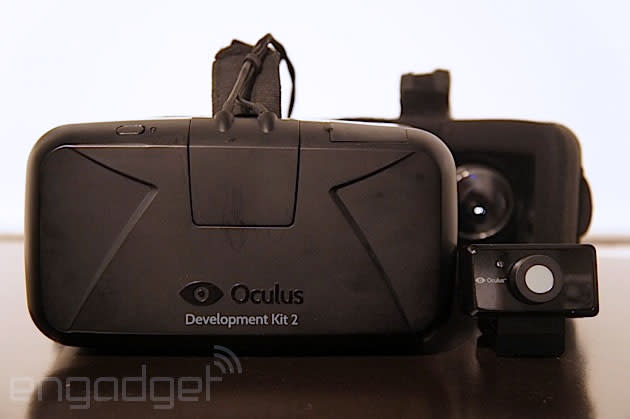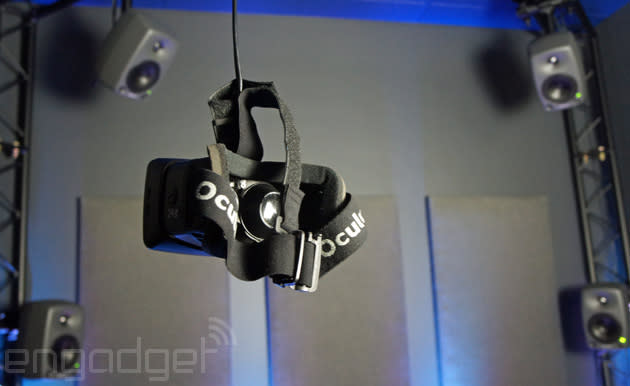Virtual reality's biggest enemy is bad virtual reality, says Oculus founder

Palmer Luckey can hardly take a step without being stopped for pictures, questions or just friendly handshakes. I'm not surprised; we're at the Silicon Valley Virtual Reality Expo, and Luckey just closed a speculative panel on the future of VR. Here, he's a celebrity, and with good reason -- the Expo floor is littered with Oculus headgear, almost without competition. As we make our way to a more quiet area, Luckey tells me that his hardware isn't enough. "What we have that's impressing all these hardcore gamers and technology enthusiasts isn't good enough to be a consumer product."
"People don't have experience with this technology," he explains further. "When it arrives, it has to be good." Nothing's a sure thing, Luckey tells us, and a poor consumer launch could spoil the milk. "I think really bad VR is the only thing that can kill off VR. That's why we've been so careful to say that 'these are devkits, do not buy, do not buy!'" Luckey quickly corrects himself, saying that he doesn't think that the Oculus DK2 couldn't be a consumer product; he just wants VR to hit the consumer space with its best foot forward. It's part of the reason Oculus decided to join Facebook.

"It lets us make the first version really, really good, and use a lot of custom components that wouldn't have been possible otherwise." Without Facebook, he continued, Oculus might have been forced to release more expensive iterative headsets to fund the envisioned consumer model. "Maybe it doesn't sell and we actually hurt the VR market overall because it wasn't good enough." Luckey is relieved its a scenario he didn't have to live. "This [Facebook] lets us have as good of a shot as we're ever going to have at making consumers believe in virtual reality."
Staving off the danger of "bad VR" also makes Luckey reluctant to push for virtual reality hardware standards -- it might stifle innovation. "If you talk to people who are actually doing things that are very novel and different from what we're doing, most of them are not very pro-standard," he explains. "The standard is going to end up being defined by whoever sells the most headsets, and it would not be a good thing for them if the standard is games that don't include motion control, or games that require a very high field of view or that absolutely require position tracking." It wouldn't help Oculus much either. "If we were to lock into a standard now, what happens when we want to make big changes that vastly improve the performance of our device and requires a complete retooling of the SDK?" The hardware isn't good enough to set a standard, he says, just like it isn't good enough for consumers yet. Still, he admits that it's good time to start thinking about what those standards might be. Eventually, the industry is going to need them.

In the meantime, Luckey is thinking about the Rift's retail launch -- if consumers are going to believe in VR, they need to have good experiences. That means games. "The biggest public challenge is going to be software. We've been talking a lot about how the Facebook deal gives confidence to content makers of all kinds, but people shouldn't take that to mean there's going to be this slam dunk of AAA content that's going to be available at launch. It doesn't mean that. Content takes a long time." While Luckey says he expects a healthy pipeline of innovative software, he admits that making good games in VR is difficult. The platform's first big hit might not be there at launch.
Before SVVR ended, I caught up with Sony's Richard Marks -- the man behind Project Morpheus. He too had his concerns about bad software hurting VR adoption. "There's no AAA title yet," he said "Most of the world asks 'when will Call of Duty be on VR,' but that's not the right answer." Hopefully, the VR community will figure out what is the right answer soon.

